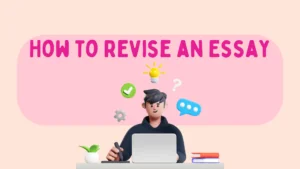Following all style academic guidelines is almost impossible if you are a college student! There are strict rules of formatting everything: from obvious cited sources to frustrating song titles. And, what do you think?

✅ AI Essay Writer ✅ AI Detector ✅ Plagchecker ✅ Paraphraser
✅ Summarizer ✅ Citation Generator
Of course, quoting a poem in your essay is no exception. (╯ ° □ °) ╯ (┻━┻)
Yeah, these academic requirements can be incredibly frustrating and tedious – if you need to cite a poem in your essay, you must understand and strictly follow a number of rules. Fortunately, our guide will uncover everything about poem quoting, and you will be able to solve the formatting issue and finally complete your essay. Let’s explore how you must format your quotes in versatile citations – there is more to it than you might think.
How to Cite a Poem in MLA Format?
To ensure that the reader can find the source in the Works Cited list, the poet’s last name must be explicitly provided when reciting a poem. The title of the poem must also be mentioned if more than one poem by the same author is cited. When you insert a quote in the main text, naming the poet and the work is standard practice. If unsure about the poem’s author or title, you should include a parenthetical citation following the quote to clarify.
MLA is probably the most popular format, slightly more common than Chicago and APA, so an average student often faces this question. There are a few steps you must take to properly implement poem lines into your academic writing.
🔖 When using a poem’s title in a sentence, be sure to include it in quotation marks. Avoid using underlining or italics on them.
Example 1 (two lines): In Emily Dickinson’s poem, the speaker contemplates death, “Because I could not stop for Death— / He kindly stopped for me” (Dickinson 1-2).
📝 Incorporate brief, three-line quotations into your essay’s body. To divide the poem’s lines, use a slash with a space on either side. Copy and paste the lines from the poem word for word; do not paraphrase. At the beginning of each new line of poetry, capitalize the first letter.
Example 2 (three lines): In Robert Frost’s famous work, he writes, “The woods are lovely, dark and deep, / But I have promises to keep, / And miles to go before I sleep” (Frost 13-15).
📚 When quoting four lines or more, use an indentation. A one-inch (2.5 cm) indentation, or ten spaces from the left margin, should be used for these quotations. Avoid using quotation marks when quoting lengthy passages. Insert the line numbers within parentheses immediately following the quotation’s final punctuation mark. The in-text citation does not require an additional comma. When introducing a quotation into a complete sentence, use a colon to prevent a comma splice.
Example 3 (four lines): In T.S. Eliot’s The Love Song of J. Alfred Prufrock, the speaker reflects on his indecision:
And indeed there will be time
To wonder, “Do I dare?” and, “Do I dare?”
Time to turn back and descend the stair,
With a bald spot in the middle of my hair— (Eliot 37-40).
Why Proper Quoting Is So Significant?
A reference book’s structure entices readers and bolsters the author’s material. Proper citations enhance the authority and the legitimacy of their study. Authors should properly cite their sources and include a bibliography in their works so that readers may rest assured that the information they are reading is based on reliable, previously published research. To avoid accusations of plagiarism, it is essential to correctly attribute any ideas or conclusions to their original authors by using appropriate citations. For readers to further examine the referenced findings in the book, authors are expected to construct a well-organized bibliography.
Citations also influence the author’s work since they bolster the research. When utilized correctly, citations can prove an author’s claims and the validity of their views. They act as a double-check, adding credibility to the author’s work and ensuring that their research and ideas are accurate. Lastly, an extensive bibliography demonstrates to readers the author’s careful and meticulous work, which is well appreciated.
How to in Text Cite a Poem: More Rules and Exceptions
However, the rules above aren’t all rules: there are more specific cases and some tricky guidelines for quoting poems in such unusual situations.
How to Cite a Poem in a Book

How to Cite a Web Poem (MLA)

How to Cite an Epic Poem (MLA)

The Bottom Line
Well, that’s all you should know about citing poems. It is vital to quote poems properly in your academic papers because you will face some problems and accusations by doing it wrong. Including poem lines in your essays is a great and reliable way to brighten up your writing, add a creative touch, and decorate the process of reading. However, to do it elegantly without encountering any fines, you should do everything right and quote poems properly.
FAQ
Follow us on Reddit for more insights and updates.





Comments (0)
Welcome to A*Help comments!
We’re all about debate and discussion at A*Help.
We value the diverse opinions of users, so you may find points of view that you don’t agree with. And that’s cool. However, there are certain things we’re not OK with: attempts to manipulate our data in any way, for example, or the posting of discriminative, offensive, hateful, or disparaging material.